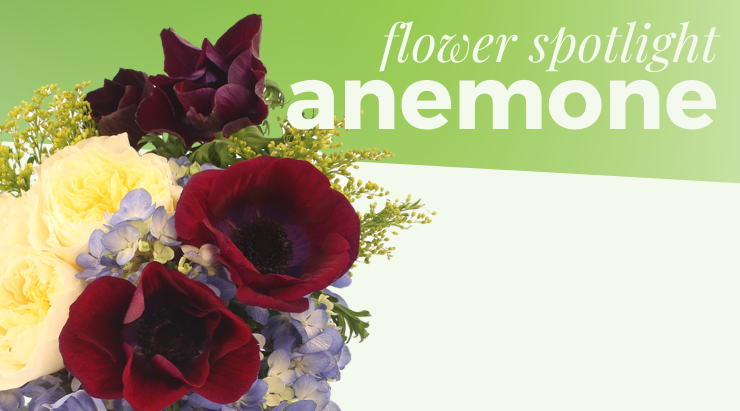
Anemone is a part of the Ranunculaceae family and has been around for ages. With over 200 species, this beautiful flower comes in many color varieties and is a beautiful addition to any arrangement. Keep reading to learn more about their origin, meaning, and some interesting facts:
Origin
Anemone has been around for over 130 million years. They can be found in North America, Europe, and Japan, and come in bluish violet, white, pink, and red. Since they are native to temperate lands, it’s hard to pinpoint an exact place where they truly originated from. In Greek mythology, they originated from the mixing of Aphrodite’s tears and the blood of Adonis, her lover.
Anemones have little to no scent and produce no nectar, relying on other insects besides bees to pollinate their seeds. Their petals stay wide open during the day, but close at night and droop to protect their seeds from the rain. Anemones have become popular in weddings and the most popular species is the Japanese anemone, which blooms in the fall.
Facts
- It was once believed that magical fairies found shelter in the folded petals of anemones during rainstorms.
- Anemones are often depicted in various paintings by Impressionist artists, including Matisse and Monet.
- Ancient Romans used to ground up the flower and use it to treat fever, bruises, and freckles.
Meanings
Since anemones are native to many places, they have a variety of meanings. Ancient Greeks believed the flower to represent the death of a loved one, while it was worn as a protection against pestilence and disease in the Middle Ages. The meaning and symbolism are still varied today. Anemones represent love, purity, and trust, but the most widespread meaning is anticipation. Stunning and superb, anemone makes the perfect stand-alone or accent flower in any arrangement. Be sure to ask your local florist to use anemones the next time you send flowers!


 Find Your
Find Your 
Speak Your Mind